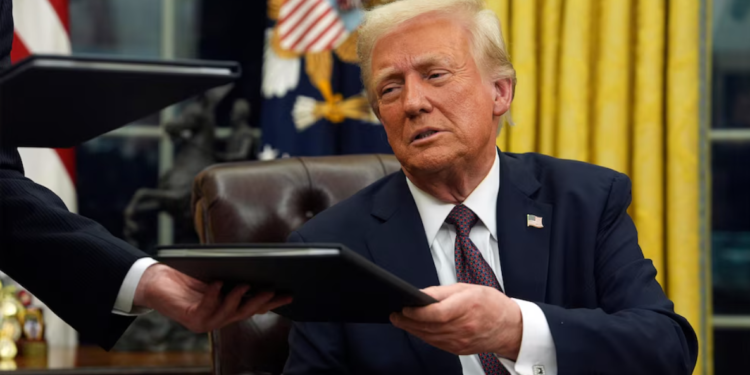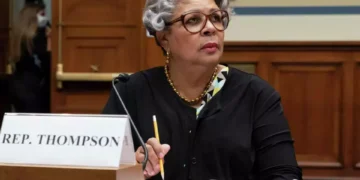Jan 28, 2025 Story by: Editor
For four years, the Environmental Protection Agency (EPA) placed environmental justice at the forefront of its agenda, striving to address health disparities in pollution-heavy communities largely of Black, Latino, and low-income populations. However, this progress has now been abruptly reversed.
In his first week, President Donald Trump dismantled key environmental initiatives, including the White House advisory team dedicated to assisting communities near industrial sites, ports, and highways. Among the canceled programs was the Biden administration’s “Justice40” initiative, which allocated 40% of environmental program benefits to hard-hit communities. This decision is expected to disrupt the allocation of funds from the Inflation Reduction Act—Biden’s hallmark climate legislation—towards climate and environmental justice programs.
Experts warn that federal reviews for new facilities under the new administration are unlikely to consider the cumulative pollution impacts on already-burdened communities. Trump’s actions have also repealed policies dating back to the Clinton era, which prioritized environmental health issues in low-income and minority areas. Additionally, Trump withdrew the U.S. from the Paris Agreement, a global pact aimed at addressing climate change.
Joe Luppino-Esposito, federal policy chief at the free-market law firm Pacific Legal Foundation, defended the moves, stating, “We’ve had this discussion at the Supreme Court and otherwise for many years, past discrimination is not an excuse for future discrimination.” He added that Trump’s executive orders aim to enforce the law “without a specific racial tinge to it.”
Despite these reversals, experts acknowledge the Biden administration’s achievements in advancing environmental justice. For instance, an EPA-funded study revealed that Black individuals across all income levels are disproportionately exposed to pollution linked to heart and lung diseases. Under Biden, the EPA introduced stricter air pollution regulations, lead pipe mandates, and record-breaking Clean Air Act fines. Federal grants were allocated for cleaning Superfund sites and providing low-emission school buses. Furthermore, the agency established an office dedicated to environmental justice efforts.
Jade Begay, an Indigenous rights and climate advocate in New Mexico, voiced her dismay, stating, “What I’m grappling with right now is both the grief of these losses and the fact that we were on an upward swing just weeks ago.”
Historically, grassroots environmental justice movements have relied on inconsistent federal support, adapting to changing administrations. Christophe Courchesne, interim director of the Environmental Law Center at Vermont Law and Graduate School, highlighted the heightened attention the Biden administration brought to the issue, making it a “bigger target” for conservative activism. He noted, “Environmental justice got swept up into this pitched battle over diversity, equity, and inclusion.”
While the Trump administration claims it remains committed to clean air, land, and water, critics argue otherwise. EPA spokesman Daniel Gall stated, “EPA is working to diligently implement President Trump’s executive orders.” However, advocates like Rena Payan of Justice Outside described the changes as “rolling back decades of progress in addressing environmental discrimination.”
Some advocates fear the rollback could worsen conditions in states like Louisiana, where industry-friendly policies already prevail. Anne Rolfes, director of the Louisiana Bucket Brigade, expressed concerns, saying, “We just have to buckle up and get ready.”
Despite federal setbacks, local organizations plan to persist. Ash LaMont of Honor The Earth emphasized the importance of sustainable community-led initiatives, saying, “We’ve been spending a lot of time figuring out our next steps… and addressing the needs of our community members.”
Peggy Shepard, co-founder of WE ACT for Environmental Justice, noted that advocacy will likely shift to state and local levels, though success will vary. “They were finally beginning to get support at the EPA and the White House,” she remarked, “and this is a big step back for the communities who are front line to some of these issues.” Source: ABC News

















